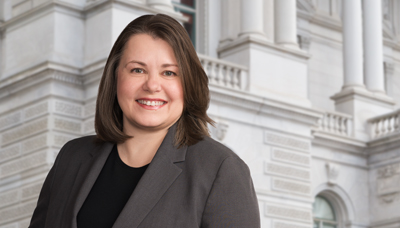On Feb. 6, the United States District Court for the Northern District of Illinois again cast doubt on the bright line rule adopted by an Illinois appellate court regarding what constitutes sufficient consideration for a restrictive covenant.
In Fifield v. Premier Dealer Services, Inc., a 2013 Illinois appellate court decision, the court created a bright line rule that initial or continued at-will employment was only sufficient consideration for post-employment restrictive covenants if the employee remained employed for two years. The Fifield holding sent employers scrambling to rewrite restrictive covenants and to provide additional forms of consideration to ensure that courts would not decline enforcement for lack of adequate consideration.
Until this month, only two Northern District of Illinois courts addressed the Fifield rule. The first case, Montel Aetnastak v. Miessen, rejected the holding in Fifield, ruling that 15 months of continued employment was sufficient consideration to support the restrictive covenant. The second case, Instant Technology v. DeFazio, followed Fifield and held that restrictive covenants were not enforceable against a group of three employees who worked 10, 19 and 21 months respectively. The Instant Technology case is currently on appeal at the Seventh Circuit.
The Northern District of Illinois’ recent holding in Bankers Life & Cas. Co. v. Miller, became the second Northern District of Illinois case to reject the Fifield bright line rule. In Bankers Life, several employees resigned and left for a rival company. Bankers Life sued to enforce the employees’ restrictive covenants. The employees moved to dismiss, claiming their restrictive covenants were unenforceable in light of the Fifield two-year rule.
Judge Manish S. Shah denied the motion to dismiss and held that the bright line rule in Fifield would not be adopted by the Illinois Supreme Court. Relying on the 2011 Illinois Supreme Court decision in Reliable Fire Equip. Co. v. Arrendondo, Judge Shah reasoned that the Illinois Supreme Court had not yet decided the issue, but that a review of the court’s holdings demonstrated that such a rule would be inconsistent with prior rulings that the enforceability of a restrictive covenant should be based on the “totality of circumstances.” The Illinois Supreme Court has cautioned against the creation of bright line rules instead of specific factual inquiries. As such, Judge Shah held that courts must make a case-by-case determination of whether there is adequate consideration rather than relying on a formalistic bright line rule.
This area of Illinois law is in a state of flux. Illinois state courts in the First District will be required to follow Fifield until the Illinois Supreme Court addresses this issue. As is evident by the discussion above, the federal district courts in Illinois will decide this issue on a case-by-case, judge-by-judge basis, at least until the Seventh Circuit weighs in.
To obtain more information, please contact the Barnes & Thornburg Labor & Employment attorney with whom you work, or a leader of the firm’s Labor & Employment Law Department in the following offices:
Kenneth J. Yerkes
Department Chair
(317) 231-7513
John T.L. Koenig
Atlanta
(404) 264-4018
David B. Ritter
Chicago
(312) 214-4862
William A. Nolan
Columbus
(614) 628-1401
Mark S. Kittaka
Fort Wayne
(260) 425-4616
Robert W. Sikkel
Grand Rapids
616-742-3978
Peter A. Morse
Indianapolis
(317) 231-7794
Scott J. Witlin
Los Angeles
(310) 284-3777
Teresa L. Jakubowski
Washington, D.C.
(202) 371-6366
Janilyn Brouwer Daub
South Bend/Elkhart
(574) 237-1130
Visit us online at www.btlaw.com or @BTLawLE, and don’t forget to bookmark our blogs at www.btlaborelations.com and www.btcurrents.com.
© 2015 Barnes & Thornburg LLP. All Rights Reserved. This page, and all information on it, is proprietary and the property of Barnes & Thornburg LLP. It may not be reproduced, in any form, without the express written consent of Barnes & Thornburg LLP.
This Barnes & Thornburg LLP publication should not be construed as legal advice or legal opinion on any specific facts or circumstances. The contents are intended for general informational purposes only, and you are urged to consult your own lawyer on any specific legal questions you may have concerning your situation.




















/Passle/6488d4630e7e25c9ac9f834a/SearchServiceImages/2024-11-14-13-11-27-495-6735f6fff42d6cc59c8ec5c1.jpg)
/Passle/6488d4630e7e25c9ac9f834a/SearchServiceImages/2024-11-11-22-02-38-042-67327efe31216b909e6ea644.jpg)
